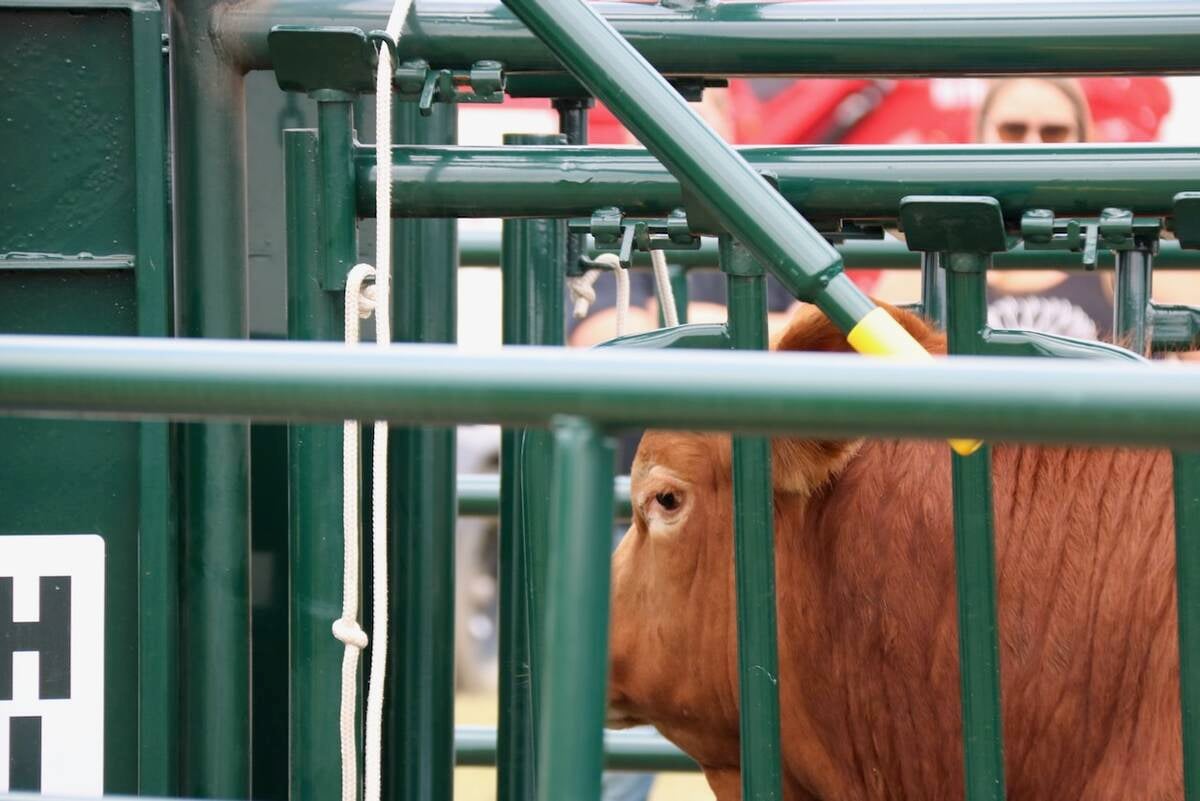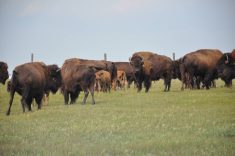The relative intelligence of domestic animals is often compared to that of children. A bright border collie may have the mental capacity of a 10-year-old human.
Animal behaviour studies have revealed the intelligence of animals to be more complex than once thought. Perception, which is how the brain recognizes what the senses tell it about the world, is often vastly different in animals compared to people.
For example, well known animal behaviourist Temple Grandin speculates that animals think in shapes rather than words, similar to autistic people.
Read Also

Good handling equipment a must on cattle operations
It’s important for the safety of producers and everyone else dealing with their stock that handling equipment is functional and safe.
Grazing behaviour in cattle appears to be a learned skill. Dairy heifers raised in drylots take several days to learn efficient grazing compared to heifers that had access to grass their entire lives.
Assuming behaviours such as grazing in herbivores are instinctive is not always correct.
The type of training used with ponies has a long-term impact on their interactions with people.
The study that worked out this connection trained two groups of ponies to back up using either food rewards as positive reinforcement or the wave of a whip as negative reinforcement. Heart rate variation was measured.
While all ponies learned to back up, the negative reinforcement group pinned their ears, tossed or turned their heads. Ponies trained with positive reinforcement had lower heart rates and no stress head movements.
The ponies were individually turned loose in the arena with a stationary person and their interaction evaluated. The positive reinforcement ponies were significantly faster to approach the person and spent more time mingling.
This human interaction part of the experiment was repeated five months after the initial training sessions and the same trend was found. Apparently, the use of aversive training methods in ponies affects their attitudes toward people in the short-and long-term.
Visual lateralization, which is the tendency to voluntarily view foreign or threatening objects with their left eye, has been found in a variety of animal species including cattle, horses, other mammals and birds.
When a coyote approaches a herd of cattle on pasture, the natural inclination is for the cattle to orientate themselves so their left eye is viewing the threat.
This should be kept in mind when handling all domestic species. Astute early horse trainers must have noticed their steeds were more comfortable when handled on the left resulting in the long-standing tradition of leading and approaching horses from the left side.
A recent study in France evaluated how visual and sound cues contribute to how horses perceive individual people. These horses were trained to stand still using a vocal cue and food rewards.
Once this was established, the trainer gave the cue with varying levels of attention: looking at the horse directly in the eye, looking over the horse’s head, standing back to the horse, and finally, facing the horse with eyes closed.
The horses were most obedient when the trainer was facing them, but still listened to the cue reasonably well in the other circumstances.
When an unfamiliar person gave the cue, the horses responded by increased attention, suggesting that the horses were startled by the familiar cue from an unknown person.
The horses were also more likely to disobey the cue when the unfamiliar person’s attention was not directly focused on them, implying a weaker relationship.
When working with a new animal, it would be wise to initially lower expectations for correct and precise obedience so a relationship can be formed and the animal can adjust to the new situation.
Acknowledging animals as intelligent, individual beings capable of thought and memory is the first step to sensible, humane training and handling.














